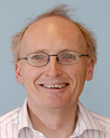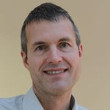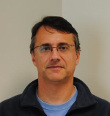Keynotes
Going Dutch: how to share a dedicated distributed infrastructure for Computer Science Research
Henri E. Bal, Vrije Universiteit, The Netherlands
Abstract: The Distributed ASCI Supercomputer (DAS) is a dedicated distributed infrastructure for Dutch Computer Science research. During its 17 year history, DAS witnessed and supported many waves in distributed computing, including wide-area computing (DAS-1), grids and peer-to-peer (DAS-2), e-Science and optical grids (DAS-3), and heterogeneous computing (DAS-4). Unlike many other test beds, the different clusters of DAS are set up by a single organization (the ASCI research school) with one clear vision for each system generation. DAS is designed specifically for Computer Science research, especially for interactive distributed experiments in areas like programming systems, resource management, and networks. With the advent of the fifth generation system, DAS-5, in 2015, DAS has literary become mature and indispensable for Dutch Computer Science.
This presentation first looks back at the impact DAS has had. Despite its relatively modest size and cost, DAS has been used for over 100 PhD theses and for numerous award winning experiments. It enabled large amounts of research funding and it played a key role in huge projects like VL-e and (currently) COMMIT/. It also served as a stepping stone for applications like astronomy, multimedia analysis, web-scale reasoning, and climate modelling, each of which won competitions with DAS. Next, the presentation will discuss several ongoing projects in more detail, including programming environments for heterogeneous accelerator-based systems and for big data applications. Here, DAS allows unique and controlled experiments on a variety of hardware. Finally, the presentation tries to draw general conclusions for Computer Science.
Short Biography:
 Prof.dr.ir. Henri Bal heads a group on High Performance
Distributed Computing at the VU University in Amsterdam. His work
focuses on underlying fundamental problems in combination with
real-world applications. His group produced programming environments
such as the Orca language, MagPIe, Manta, Ibis, Satin and JavaGAT.
Prof.dr.ir. Henri Bal heads a group on High Performance
Distributed Computing at the VU University in Amsterdam. His work
focuses on underlying fundamental problems in combination with
real-world applications. His group produced programming environments
such as the Orca language, MagPIe, Manta, Ibis, Satin and JavaGAT.
He was adjunct director of the Virtual Lab for e-Science project (2004-2009), which also stimulated the establishment in 2011 of the Netherlands eScience Center (NLeSC). His current research focuses on both applications and systems. He works on several applications in computer science, such as large-scale distributed reasoning over semantic web data and distributed model checking. In addition, he studies several real-world scientific applications, with researchers in astronomy, climate modelling, high-energy physics, human movement sciences, and economy. His current research on systems covers programming environments for GPUs (Graphics Processing Units) and distributed smartphone systems.
Bal has a PhD in Computer Science from VU University (1989) and MSc in Mathematics from Delft University of Technology (1982). He is a member of the Informatics Section of the Academia Europaea, scientific director of the ASCI research school, and coordinator of the DAS infrastructure. He has been program chair for HPDC and CCGrid. He was supervisor of 22 completed Ph.D. theses.
Cloud Computing for Healthcare
Paul Watson, Newcastle University, UK
Abstract: Cloud Computing has the potential to revolutionise healthcare. The expansion of wireless internet, coupled with a massive growth in cheap, mobile sensors offers opportunities to deliver personalised, high-quality healthcare cheaply to people in their own homes. Clouds have an important role to play in realising this potential, as it requires the ability to store and analyse the vast amounts of data that these sensors collect. This presents both problems and opportunities: new scalable, parallel algorithms and platforms are needed to analyse the sensor data, while there are important advantages to be gained by combining the data from a population of users in order to better understand medical conditions and how best to treat them.
The talk will be illustrated with examples from our projects in this area, including the use of sensors to understand older people's activity in order to provide personalised treatment; and also on the analysis of gaming data to help people recover from strokes.
Short Biography:
 Paul Watson is Professor of Computer Science and Director of the
Digital Institute at Newcastle University UK. He also directs the UK's
Social Inclusion through the Digital Economy Hub. He graduated in 1983
with a BSc in Computer Engineering from Manchester University,
followed by a PhD on parallel graph reduction in 1986. In the 80s, as
a Lecturer at Manchester University, he was a designer of the Alvey
Flagship and Esprit EDS systems. From 1990-5 he worked for ICL as a
system designer of their Goldrush MegaServer parallel database server
product.
Paul Watson is Professor of Computer Science and Director of the
Digital Institute at Newcastle University UK. He also directs the UK's
Social Inclusion through the Digital Economy Hub. He graduated in 1983
with a BSc in Computer Engineering from Manchester University,
followed by a PhD on parallel graph reduction in 1986. In the 80s, as
a Lecturer at Manchester University, he was a designer of the Alvey
Flagship and Esprit EDS systems. From 1990-5 he worked for ICL as a
system designer of their Goldrush MegaServer parallel database server
product.
He then moved to Newcastle University, where he has pursued his research interest in scalable information management with a current focus on Cloud Computing. Professor Watson is a Chartered Engineer, and a Fellow of the British Computer Society.
Greening Datacenters: Past, Present, and Future
Ricardo
Bianchini, Rutgers University and Microsoft, USA
(keynote sponsored by ![]() )
)
Abstract: Datacenters host the server infrastructure that powers organizations of many sizes, from universities and enterprises to large Internet services. Collectively, datacenters consume a massive amount of power, representing a financial burden for datacenter operators, an infrastructure burden on power utilities, and an environmental burden on society. However, this problem could be worse if it were not for several advances made over the last decade, especially in the design of large-scale datacenters. In this talk, I will overview the architecture of these datacenters, discuss the main advances made to date, and suggest research directions for the future. Interestingly, some of these directions can benefit directly from the expertise in the parallel computing community.
Short Biography:
 Dr. Ricardo Bianchini received his PhD degree in Computer
Science from the University of Rochester in 1995. He is a Professor
of Computer Science at Rutgers University, but is currently on leave
working as Microsoft's Chief Efficiency Strategist. His main
interests include cloud computing, and power/energy/thermal management
of datacenters. In fact, Dr. Bianchini is a pioneer in datacenter
energy management, energy-aware storage systems, energy-aware load
distribution across datacenters, and leveraging renewable energy in
datacenters. Dr. Bianchini has chaired the program committee of
several conferences and workshops, and currently serves on the
editorial board of four journals. He has published eight award
papers, and has received the CAREER award from the US National Science
Foundation. He is currently an ACM Distinguished Scientist.
Dr. Ricardo Bianchini received his PhD degree in Computer
Science from the University of Rochester in 1995. He is a Professor
of Computer Science at Rutgers University, but is currently on leave
working as Microsoft's Chief Efficiency Strategist. His main
interests include cloud computing, and power/energy/thermal management
of datacenters. In fact, Dr. Bianchini is a pioneer in datacenter
energy management, energy-aware storage systems, energy-aware load
distribution across datacenters, and leveraging renewable energy in
datacenters. Dr. Bianchini has chaired the program committee of
several conferences and workshops, and currently serves on the
editorial board of four journals. He has published eight award
papers, and has received the CAREER award from the US National Science
Foundation. He is currently an ACM Distinguished Scientist.


